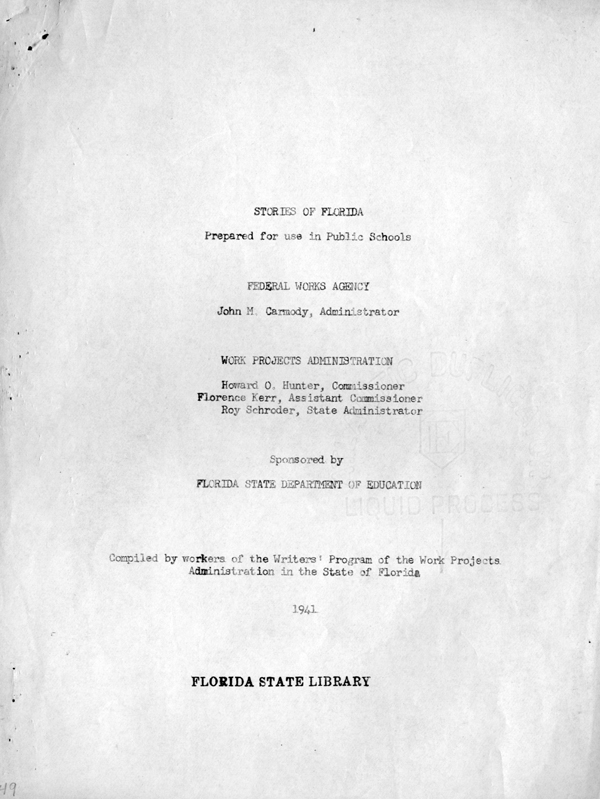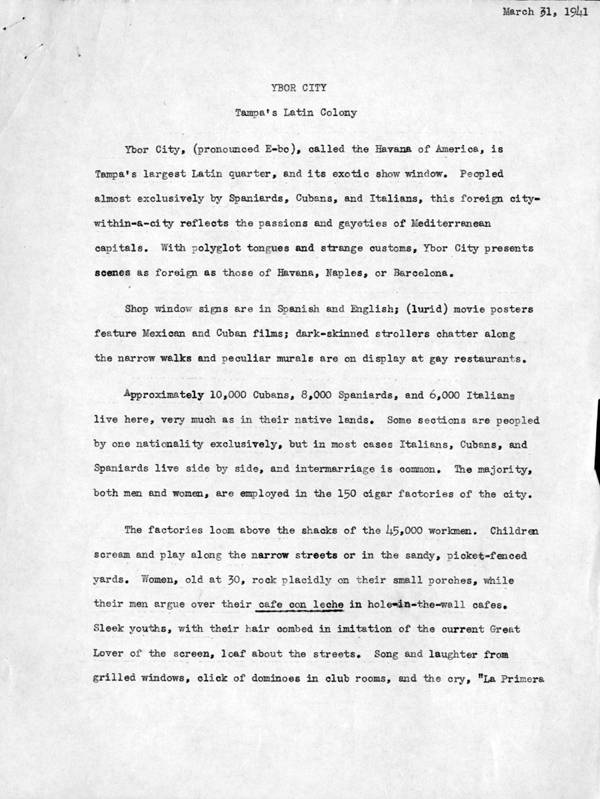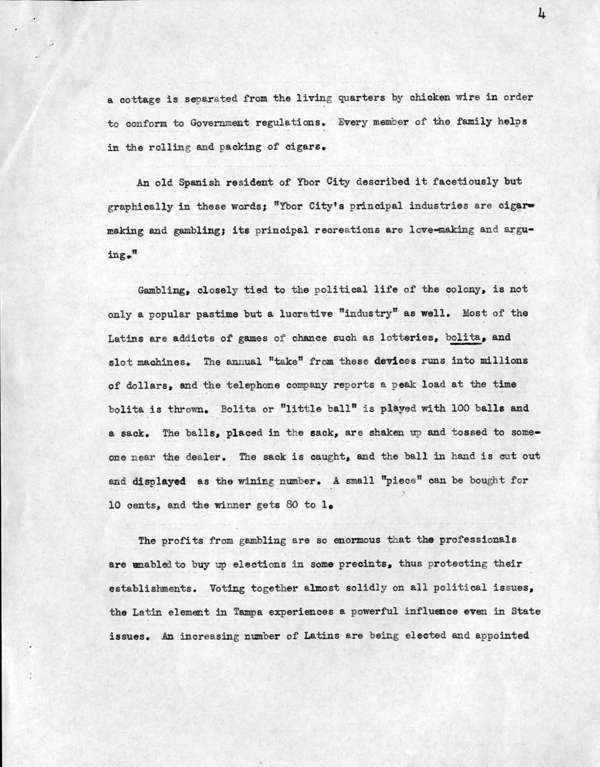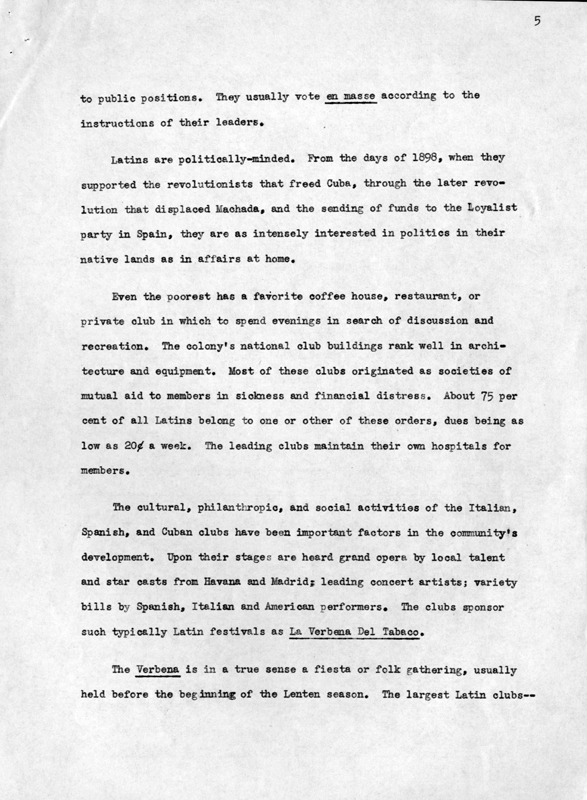Florida Memory is administered by the Florida Department of State, Division of Library and Information Services, Bureau of Archives and Records Management. The digitized records on Florida Memory come from the collections of the State Archives of Florida and the special collections of the State Library of Florida.

State Archives of Florida
- ArchivesFlorida.com
- State Archives Online Catalog
- ArchivesFlorida.com
- ArchivesFlorida.com
State Library of Florida
Related Sites

Description of previous item
Description of next item

Title
Published Date
[page 7]
Generally the Spanish youth attends the public schools, but those of
the more religious families are placed in parochial institutions. Of the poorer
classes, the majority, few advance beyond the eighth grade, and many quit
school at the fourth or fifth grades. This is due to economic conditions rather
than to lack of ambition. The children of the more prosperous go through high
school and a large number receive college educations. Some of the
outstanding professional men of Tampa are of Latin birth.
The lot of the uneducated Spaniard is one of toil and meager wages.
Cigar-factory employees go to work each morning without any breakfast except
a cup of coffee, and perhaps a piece of bread. About 10 o'clock factories allow
a half-hour intermission, when all the employees have coffee and rolls. For
years the factories permitted professional readers or lectors to read to employees
at work, but this custom was abolished in 1932, because it is said, the lectors
read so much literature of a radical nature that they kept the factories on the
verge of strike most of the time.
Virtually all customs of the Spanish are also typical of the Cubans,
except that the latter are less bound by traditions of Spain, and their physical
and cultural characteristics have been influenced by their mixed ancestry.
Most Cubans are descendants of the Spanish inhabitants of Cuba, others are
Negroes, some Creoles, and others of various blood blends. The complexity
of racial lines in the Cuban is better realized when it is considered that racial
distinctions are not closely drawn.
Title
Subject
Description
Source
Date
Contributor
Format
Language
Type
Identifier
Published Date
Image URL
Thumbnail
Transcript Path
Image Path
Image Path - Large
Chicago Manual of Style
Ybor City: Tampa's Latin Colony. 1941. State Archives of Florida, Florida Memory. <https://www.floridamemory.com/items/show/181550>, accessed 12 February 2026.
MLA
Ybor City: Tampa's Latin Colony. 1941. State Archives of Florida, Florida Memory. Accessed 12 Feb. 2026.<https://www.floridamemory.com/items/show/181550>
AP Style Photo Citation

 Listen: The Blues Program
Listen: The Blues Program







